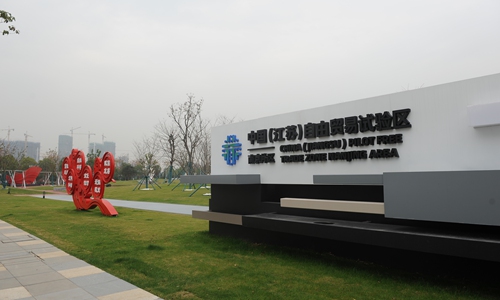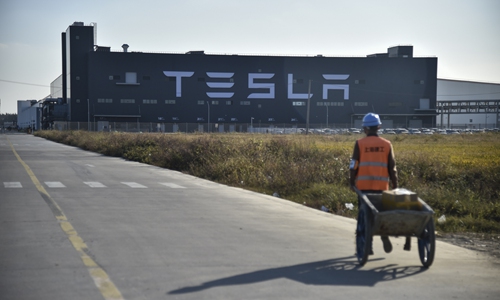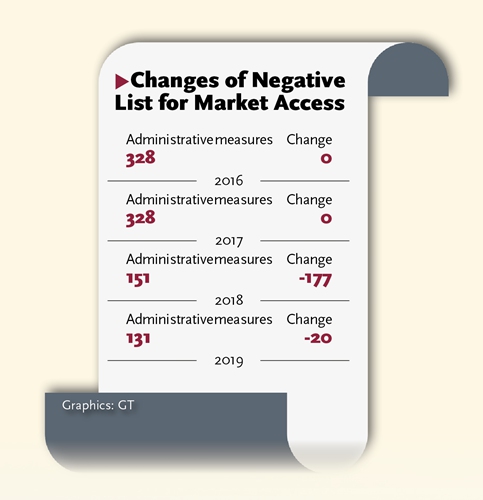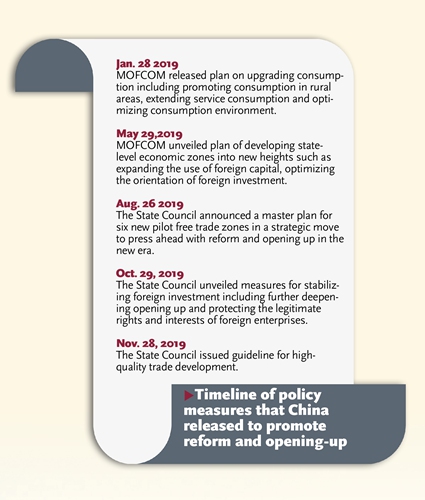HOME >> SOURCE
Another tough year ahead for China’s trade
By Wang Cong Source:Global Times Published: 2019/12/16 22:23:40
Measures needed to cope with difficulties, risks: experts

A sign of China (Jiangsu) Pilot Free Trade Zone Nanjing Area Photo: CNSPhoto
Despite all the difficulties and risks over the past year, China's foreign trade is set to finish 2019 on a strong note, particularly with a looming phase one trade agreement with the US that marks the reduction of US tariffs on $120 billion worth of Chinese goods.But for officials at the Ministry of Commerce (MOFCOM), this is hardly a time to take a breather, because 2020 is shaping up to be another tough year, with a trade war to be wound up, a faltering global free trade system and a precarious global economy. Some have even predicted that 2020 could be one of the most challenging years for the world's largest trading nation.
Top officials are well aware of this. A statement after the tone-setting Central Economic Work Conference on Thursday stated that there are "significantly rising sources of global turmoil and risks."
For its part, the MOFCOM said on Saturday that the internal and external environment could be "even more complicated and challenging" in 2020. "[We must] prepare contingency plans to deal with all types of risks and challenges," the MOFCOM said in a statement following a meeting of top officials.

A general view of Tesla's factory in Shanghai, China Photo: CNSPhoto
Top prioritiesGiven this assessment, top policymakers have indicated that they would focus on two areas for stabilizing foreign trade and foreign investment: Improving domestic market conditions to attract foreign investment and expanding foreign markets for Chinese products.
Domestically, major policy initiatives could be expected from the MOFCOM in the new year to further open the domestic market for foreign investors, according to Li Yong, deputy chair of the expert committee of the China Association of International Trade, which is affiliated with the MOFCOM.
"The top priority is to improve the domestic business climate for foreign companies and further open up the market to attract foreign capital," Li told the Global Times on Monday.

GT
One top task for the MOFCOM is to implement the new Foreign Investment Law, which guarantees greater access and enhanced protection for foreign investment in China and is set to be take effect in 2020, Li said.Top policymakers have also designated stabilizing foreign investment and trade as two of the top priorities for 2020, as they seek to ensure stability in the world's second-largest economy amid downward pressure from a structural transition period at home and trade tensions and weakening global demand.

GT
Apart from implementing the new Foreign Investment Law, officials are also expected to further cut items on the negative list of sectors that are off-limits for foreign investors and allow foreign investment in more areas such as the financial, banking and services sectors, experts said.More efforts are also expected to enhance protection of intellectual property rights, they said.

GT
Overseas marketsChinese trade officials will scramble to push for more free trade agreements (FTAs) with more countries and regions, help preserve the multilateral trade system and carry out reforms, to expand overseas markets for Chinese goods, experts noted.
"With the trade war, it is imperative for China to seek alternative markets for exports," Chen Fengying, a research fellow at the China Institutes of Contemporary International Relations in Beijing, told the Global Times on Monday, pointing to several FTAs that are under discussion.

GT
While continuing negotiations with the US to resolve the trade war, Chinese officials have also pursued more trade and investment agreements with major economies, including the Regional Comprehensive Economic Partnership (RCEP), which is set to be signed next year, and a bilateral investment treaty with the EU.The trade war will also command plenty of attention from top officials in the coming year as well, as more negotiations are expected to address remaining issues to bring an ultimate end to the costly battle, following the phase one agreement, experts noted.
"While there are still a lot of issues to be addressed, there is a reasonable expectation that the trade talks will continue to yield more progress and that tariffs will be further lowered instead of raised," Li said.
RELATED ARTICLES:
Posted in: ECONOMY